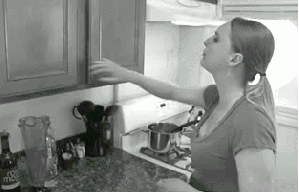The amount of safety advice that women* are given with the goal of "not getting raped" is extensive, to say the least. It is long, and it just keeps getting longer as new products are marketed to us, and often the individual pieces of advice are conflicting.
As a person who is the target of all this safety advice, how do we navigate what pieces of advice make sense in our lives? Are we allowed to decide what makes sense to us and what is relevant to our realities?
On its face, that's a pretty innocuous question. Putting that question into practice by being critical of the specific safety products or advice, however, I have frequently been accused of everything from not being serious about preventing my own rape to wanting women to get raped to prop up the Feminist Industrial Complex. I wish I were exaggerating.
When I'm critical of safety advice or products, it's because I am very much invested in stopping rape. I am so invested that it is not enough for me that a tip or product provides the illusion of safety; they must actually prove they are worth the time, expense, inconvenience, and potential danger they may pose for me to not only use them for myself but also recommend them to others.
For example, I've been heavily critical of the RapeAxe, and Undercover Colors and the ways using those products themselves can pose serious health risks. Those criticisms don't even mention the current rise in ebola infections.
Maybes aren't good enough for me. If you want me to alter and restrict my life more than I already do, then I want proof, I want field testing, and I want evidence this tip/product/philosophy does not just work in an alternate dimension populated by people from infomercials.
If you have safety products and advice that you think will help, absolutely share them. But keep your cool if people point out practical issues with them. We're allowed to think critically about the ways we alter our lives for our own safety.
*Safety advice against rape is more often than not given out aimed at women in cissupremecist binary language. When I am referring to "women and girls" in this post, I mean all female-presenting persons who are at the receiving end of this advice.
As a person who is the target of all this safety advice, how do we navigate what pieces of advice make sense in our lives? Are we allowed to decide what makes sense to us and what is relevant to our realities?
On its face, that's a pretty innocuous question. Putting that question into practice by being critical of the specific safety products or advice, however, I have frequently been accused of everything from not being serious about preventing my own rape to wanting women to get raped to prop up the Feminist Industrial Complex. I wish I were exaggerating.
When I'm critical of safety advice or products, it's because I am very much invested in stopping rape. I am so invested that it is not enough for me that a tip or product provides the illusion of safety; they must actually prove they are worth the time, expense, inconvenience, and potential danger they may pose for me to not only use them for myself but also recommend them to others.
For example, I've been heavily critical of the RapeAxe, and Undercover Colors and the ways using those products themselves can pose serious health risks. Those criticisms don't even mention the current rise in ebola infections.
"But what if this tip/product/philosophy prevents just one rape? Isn't that enough to give these a pass, if only to save one person the heartache and trauma?"That kind of statement, while often made in earnest and with good intentions, misses the point by a wide margin and is often made to shut down the conversation about the person's valid and tangible concerns. Maybe anti-rape products will work? Well, maybe crossing the street instead of staying on the south side will prevent me from getting squashed from a falling piano. Maybe singing karaoke off-key for a friend's birthday will result in me being offered my own reality tv show.
Maybes aren't good enough for me. If you want me to alter and restrict my life more than I already do, then I want proof, I want field testing, and I want evidence this tip/product/philosophy does not just work in an alternate dimension populated by people from infomercials.
If you have safety products and advice that you think will help, absolutely share them. But keep your cool if people point out practical issues with them. We're allowed to think critically about the ways we alter our lives for our own safety.
*Safety advice against rape is more often than not given out aimed at women in cissupremecist binary language. When I am referring to "women and girls" in this post, I mean all female-presenting persons who are at the receiving end of this advice.

Comments
Post a Comment